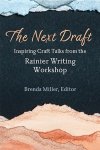
In this collection of essays, Dorothy J. Wang offers a roadmap to rethinking how poetry is critically discussed, and the ways in which the role of race is often occluded, through the study of five contemporary Asian American poets—Mei-mei Berssenbrugge, Marilyn Chin, Li-Young Lee, Pamela Lu, and John Yau. Through these close studies, Wang exemplifies a rigorous way of thinking about each poet’s craft while contending that aesthetic forms are inseparable from social, political, and historical contexts in the writing and reception of all poetry. Wang covers a vast range of aesthetics, from traditional lyric poetry to avant-garde work, looking into the nuances behind metaphor, desire, form, and irony. The book asks us all to be better readers, in particular, when considering the ways in which we critique poetry. As Wang contends in the preface of the book: “Critics should accord the same degree of complexity and respect to the whole stylistic range of minority poetry as they do to ‘racially unmarked’ poetry.”












